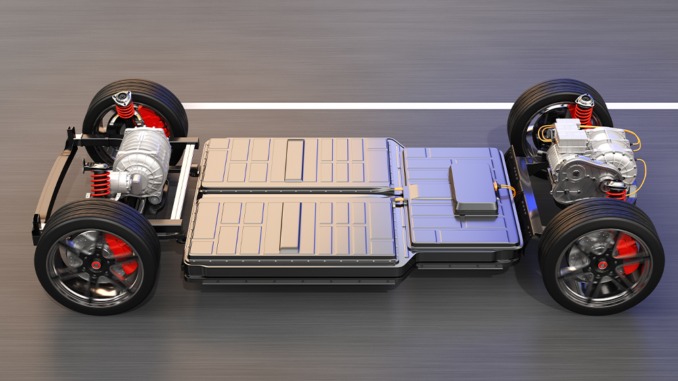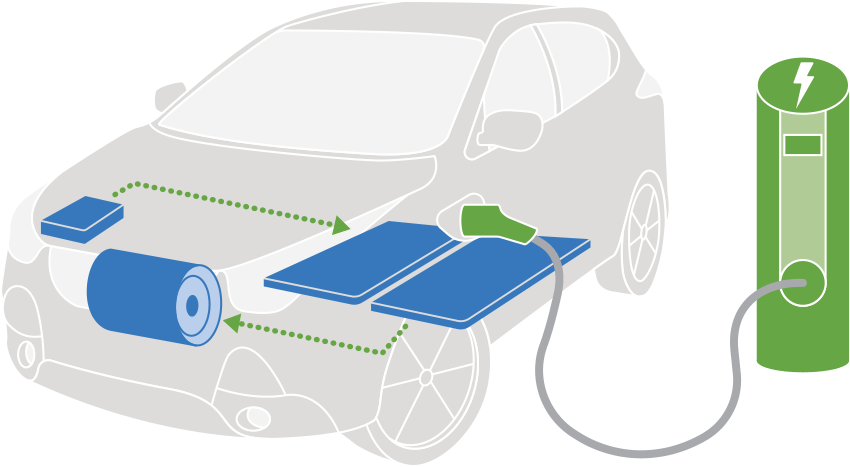
The rise of electric vehicles (EVs) has sparked a revolution in the automotive world. With governments pushing for more sustainable transportation and consumers increasingly considering eco-friendly alternatives, the battery is at the heart of this shift. However, one common question looms large in the minds of potential EV buyers: Can EV batteries last 15 years? Given that traditional internal combustion engine (ICE) vehicles have a long history of established reliability, it’s essential to examine how EV batteries hold up in comparison and what factors influence their longevity.

This blog post dives into the various aspects of EV battery lifespan, key factors affecting their durability, and whether they can truly last for 15 years, as some manufacturers claim.
Understanding EV Battery Technology
Most EVs today use lithium-ion (Li-ion) batteries, the same technology powering your smartphone or laptop. These batteries have proven to be energy-efficient, light, and capable of high energy density, making them suitable for automotive applications.
However, like all batteries, Li-ion batteries degrade over time. This degradation results in a gradual reduction of energy capacity, meaning the range of the EV will decrease as the battery ages. But does that imply your EV’s battery will give out after just a few years? Not necessarily.
Key Components of Battery Degradation:
- Charge Cycles: Batteries age primarily through charge cycles, where one full charge and discharge count as one cycle. Every battery has a finite number of cycles before it starts losing capacity.
- Thermal Management: Extreme heat or cold can accelerate battery degradation. Most modern EVs come equipped with thermal management systems to regulate the battery’s temperature, ensuring longevity.
- Depth of Discharge: Fully discharging a battery often can speed up degradation. EVs have built-in safeguards to prevent this, allowing for optimized partial charging that prolongs battery life.
- Calendar Aging: Time itself also degrades the battery’s capacity, even if the vehicle isn’t used frequently. Calendar aging is influenced by factors like temperature and storage conditions.
Battery Lifespan Claims: Reality vs. Expectation
Manufacturers like Tesla, Nissan, and General Motors have set ambitious standards for battery longevity, often offering warranties between 8 to 10 years or 100,000 to 150,000 miles, whichever comes first. These warranties are based on extensive testing and real-world data, but can these batteries really last 15 years?
Real-World Data on Battery Longevity
Recent studies and real-world data suggest that EV batteries can last longer than originally anticipated. For example:
- Tesla’s Data: Tesla has released data indicating that its vehicles retain over 90% of their battery capacity after 150,000 miles. Assuming the average driver covers about 12,000 miles annually, this means the battery could last well beyond 10 years before significant degradation occurs.
- Nissan Leaf: Early models of the Nissan Leaf faced degradation issues due to a lack of active thermal management, especially in hot climates. However, more recent versions have improved significantly, with reports of minimal degradation after several years of use.
- Chevrolet Bolt: The Chevrolet Bolt, which has been on the market since 2017, shows promising results. Owners have reported that their batteries have only lost 5-10% of their capacity after 100,000 miles.
While these results are promising, achieving a battery lifespan of 15 years will depend heavily on usage patterns, climate, and how well the vehicle is maintained.

Factors That Influence EV Battery Longevity
The longevity of an EV battery depends on several key factors, some of which are controllable by the owner, while others are inherent to the technology and environment.
1. Climate and Temperature
Extreme temperatures, both hot and cold, can accelerate battery degradation. In hot climates, especially, the battery’s chemical reactions become more volatile, increasing wear and tear. Conversely, cold weather can reduce the battery’s ability to store and discharge energy efficiently, although it typically causes less long-term damage.
Most modern EVs include thermal management systems to mitigate these effects, but the environment in which the vehicle is used still plays a significant role in battery life.
2. Charging Habits
Charging your EV properly can extend its battery life. Here are some tips:
- Avoid frequent full charges: Many experts suggest charging the battery to about 80% for regular use and saving full charges for long trips.
- Don’t let the battery completely deplete: Running the battery down to zero frequently can shorten its lifespan.
- Use slower charging methods: While fast charging is convenient, it puts more stress on the battery and should be used sparingly. Home charging or Level 2 charging is gentler on the battery.
3. Driving Patterns
Aggressive driving, characterized by rapid acceleration and deceleration, can cause the battery to work harder, leading to more wear. Likewise, frequently driving long distances or at high speeds can reduce battery health over time. On the other hand, regular and moderate driving is less likely to strain the battery.
4. Battery Size and Range Buffers
Larger battery packs tend to degrade more slowly because they undergo fewer charge cycles for the same distance driven. Additionally, many EVs come with a built-in buffer, meaning that even when the battery appears to be fully discharged, it still retains some reserve capacity. This prevents over-discharge, which can be harmful to the battery.
Technological Advancements: Prolonging Battery Life
Battery technology is advancing rapidly. Researchers are exploring new types of batteries, such as solid-state batteries, which promise longer lifespans, faster charging, and increased energy density. Additionally, new battery management systems (BMS) and software improvements help monitor and optimize battery health in real-time, reducing unnecessary wear and maximizing battery life.
One exciting development is battery rejuvenation technology. Companies like Tesla are experimenting with techniques to rejuvenate older batteries by replacing certain degraded cells or using advanced algorithms to recondition them. This could mean that, in the future, replacing an entire battery pack won’t be necessary; instead, EV owners could opt for partial repairs that restore battery performance at a fraction of the cost.
What Happens After 15 Years?
Even if an EV battery does degrade significantly after 15 years, it doesn’t mean the vehicle becomes unusable. There are several options for owners at that point:
- Battery Replacement: While expensive today, the cost of EV battery replacements is expected to decrease significantly in the coming years. With improvements in manufacturing and economies of scale, future EV owners might find battery replacements more affordable.
- Repurposing the Battery: Degraded EV batteries can still store a substantial amount of energy, making them suitable for second-life applications such as home energy storage. Major manufacturers and startups are already exploring ways to repurpose old EV batteries for stationary storage solutions.
- Recycling: The recycling of EV batteries is becoming more efficient, with processes that can recover valuable materials like lithium, cobalt, and nickel, reducing the environmental impact of battery production and disposal.
Conclusion: Can EV Batteries Really Last 15 Years?
The answer is a qualified “yes.” With proper care, most EV batteries can last upwards of 15 years, especially with advancements in battery technology, improvements in thermal management, and the potential for software optimizations. Real-world data supports the claim that today’s EV batteries degrade slowly, and with proper usage habits, drivers can expect their batteries to last well beyond the standard warranty period.
However, battery longevity depends heavily on several factors, including climate, driving habits, and charging patterns. While reaching 15 years is possible for many, there are no guarantees for every driver or vehicle. That said, the overall trajectory for EV battery technology is promising, and it’s likely that future innovations will extend battery life even further, making EVs an increasingly viable option for long-term ownership.

Leave a Reply